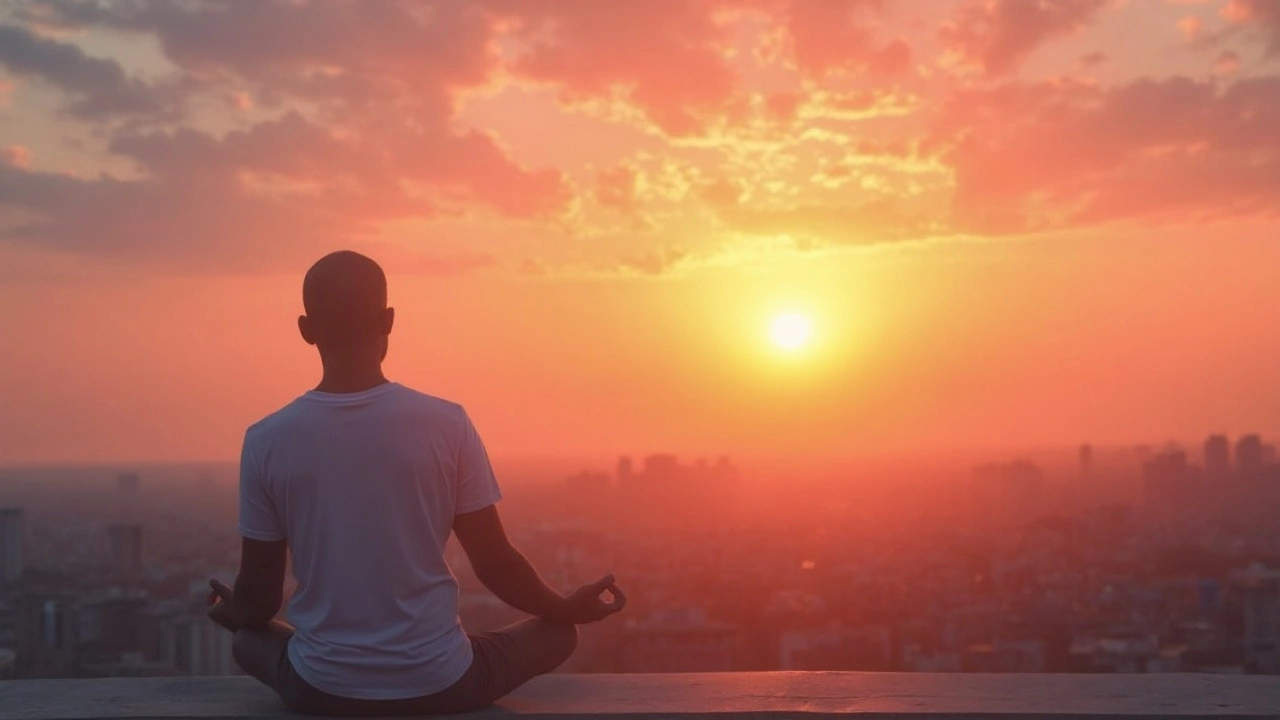Does Your Body Ever Fully Recover from Chemotherapy?
 Apr, 16 2025
Apr, 16 2025
So, you've been through chemotherapy. Maybe you're just curious how folks really bounce back from it. Either way, let's lay down some truth: chemo can hit like a truck. But does your body ever really get back to normal after all that? That's a big question, and it can get a bit complicated.
Chemo's main mission is to hunt down those pesky cancer cells, but in the process, it can mess with other fast-growing cells in your body, too. This means you might deal with hair loss, feel tired all the time, or even have a temperamental stomach. And yeah, some effects stick around longer than expected.
Talking about long-term effects can be a bit like comparing scars at a party—everyone's experience is different. Some folks find their energy tanks stay a little emptier or their brains keep taking foggy detours. But don't lose hope, the body has an amazing knack for healing if you give it a chance. So, let’s explore what recovery really looks like and how you can nudge your body in the right direction.
- Understanding Chemotherapy's Impact
- Short-term and Long-term Effects
- Can the Body Fully Heal?
- Tips for Post-Chemo Recovery
Understanding Chemotherapy's Impact
Chemotherapy is like a double-edged sword. On one hand, it fights like a champ against cancer cells, but on the other, it doesn't exactly play favorites with your healthy cells. It goes after any fast-growers, which include things like your hair follicles, bone marrow, and the lining of your stomach. Yikes, right?
When people start chemo, they're usually prepared for some hair loss. But that's just the start. There's also the constant fatigue that doesn't just go away after a good night's sleep. Part of this exhaustion comes from chemo's effect on your immune system, which can take a hit and leave you feeling like you're in a perpetual state of jet lag.
One of the more surprising impacts is something folks like to call the "chemo brain." It's as if every to-do list in your head suddenly vanished. This could mean getting easily distracted or even struggling to find the right words during a conversation.
Here's a quick look at some common side effects people experience:
- Hair loss or thinning
- Weak immune response
- Fatigue
- Nausea or vomiting
- Mental fog (chemo brain)
Though these impacts sound grim, it’s important to see them as part of the process in your fight against cancer. Studies show that while some effects are temporary and fade after treatment ends, others can linger. Understanding these impacts can help one anticipate and tackle the path to recovery more effectively.
And here's the thing: while chemotherapy recovery varies from person to person, knowing what to expect can make a huge difference in managing the process. Some folks bounce back faster than others, and a lot of that depends on individual factors like age, overall health, and the type of cancer being treated. So, being in tune with how chemo affects your body is a great first step in reclaiming your health.
Short-term and Long-term Effects
When you're dealing with chemotherapy recovery, understanding the side effects that pop up both in the short term and long term can help you navigate the choppy waters a bit better. Let's break it down.
Short-term effects are usually pretty immediate and can sometimes be intense. Some common ones include nausea, vomiting, fatigue, and hair loss. Yeah, losing hair is a bummer, but it's usually temporary. Fatigue, though, can feel like being glued to the couch with zero energy to spare. It's not just being tired; it's a more all-encompassing type of exhaustion.
Then there are those surprise guests that might show up later to the party—long-term effects. These can be sneaky and varied. For instance, some people might notice a bit of 'chemo brain,' which is exactly what it sounds like—a kind of mental fog that messes with memory and concentration. Sometimes, nerve damage leaves folks with tingling sensations or numbness in their fingers and toes, called peripheral neuropathy.
Certain long-lasting effects may actually hang around, reminding you of the journey you've been through. These include:
- Heart conditions, especially if specific chemo drugs were used.
- Lung issues and breathing difficulties.
- Fertility changes, sometimes affecting future plans for having kids.
It's worth noting that everyone's journey is different. Not everyone will have these effects, and for many, they improve or completely go away with time. Keeping your healthcare team in the loop about any nagging issues can help them to manage and address these effects.
Dealing with the ups and downs of both short and long-term effects can be frustrating. But having a solid understanding of what your body might go through sets a foundation for a smoother post-chemo journey. And hey, who doesn’t like being prepared for what’s to come?

Can the Body Fully Heal?
Alright, so here's the deal. When we talk about healing fully from chemotherapy, it's not always black and white. The body is astonishingly resilient, but returning to 'pre-cancer normal' might not be possible for everyone.
First off, let's chat about energy levels. It's normal to feel wiped out long after treatment wraps up. Sometimes it takes months, even years, for energy to bounce back fully. Regular exercise, tailored to what you can handle, is commonly recommended to rebuild strength gradually.
The immune system is another piece of the puzzle. Chemo can take its toll, making your defenses a bit wobbly. While many folks see improvements, some might find their immune system has a new normal. Eating well, getting enough sleep, and staying on top of any vaccinations or boosters can help keep things in check.
Then there’s the brain fog—a common complaint post-chemo. Dubbed 'chemo brain,' it includes things like forgetfulness and trouble concentrating. Strategies like memory exercises, setting reminders, and even mindfulness practices have been shown to make a difference.
Here's a bit of a fact: Some studies show that the heart, liver, or lungs might also take a hit during chemo. Outcomes can vary, but regular screenings and check-ups can help detect any lingering issues early.
So, does your body fully heal? It depends. For some, the answer might be a 'yes, but differently,' and for others, the focus might be on adapting to a new normal while finding ways to boost recovery and well-being.
Recovery can be like learning to play an old instrument in a new way. Sometimes, just knowing how to make the best of it with the right tips and tricks is key.
Tips for Post-Chemo Recovery
Alright, so you're on the other side of chemo, and you're probably wondering how to help your body bounce back as much as it can. While everyone's path to recovery is unique, some tips can make the journey smoother.
First off, fueling your body with nutritious food can make a world of difference. Focus on a balanced diet rich in fruits, vegetables, lean proteins, and whole grains. And hey, don't forget to hydrate. Seriously, water can be your best friend during this time. Eating well can give your energy levels a boost and support your immune system.
Speaking of the immune system, gentle exercise is another great tool in your recovery toolbox. Think walks around the block or a light yoga session. It's not about breaking records; it's about slowly building up strength and endurance. Moving your body helps improve circulation and can even lift your spirits.
Mental health matters, too. Chemotherapy takes a toll not just on the body but also on the mind. Consider talking to someone, whether it’s a professional therapist or a support group of folks who get where you're coming from. Sometimes just sharing the load can lighten it.
Rest is crucial. Your body needs time to heal, so listen to it. If you're tired, don't push it; get some sleep. Short naps during the day can be really beneficial, and establishing a regular sleep routine can help you feel more refreshed.
Here's a fun fact: some studies suggest that engaging in hobbies or activities you love can speed up recovery. Whether it's painting, gardening, or even playing video games, doing what brings you joy can be a great stress reliever.
To give you a rough idea of common post-chemo hurdles and how often folks face them, here's a quick rundown:
| Post-Chemo Challenge | Average Affected Population |
|---|---|
| Fatigue | 80% |
| Brain Fog | 50% |
| Digestive Issues | 40% |
Ultimately, the key to post-chemo recovery is patience and kindness towards yourself. You’ve been through a lot, and it's okay if things take time. Celebrate small victories and know that each step forward, no matter how tiny, is still progress.